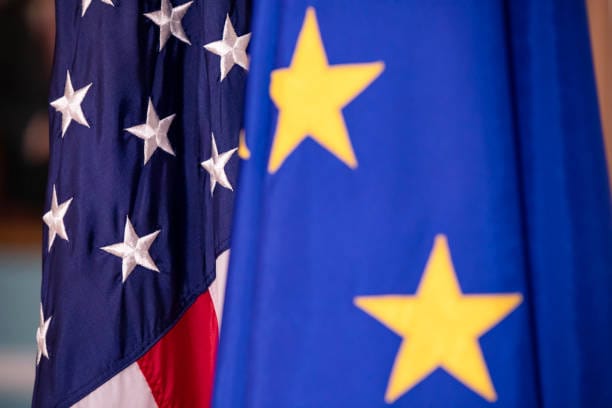One of the most perplexing aspects of Trump’s trade war is his decision to impose draconian tariffs on virtually every country in the world, both friend and foe, regardless of whether they engage in unfair trade practices against the US.
His best argument in favor of tariffs is in relation to China, which many trade experts feel has engaged in unfair trade practices for years, both by dumping of goods at unreasonably low prices to corner markets and drive out competition, and by expropriating intellectual property. Both Europe and the US have suffered from these practices, as have many other countries like Canada, Japan and South Korea – all traditional allies of the US.
This is why it makes no sense for the US to have alienated its allies at the same time that it has decided to escalate its trade war with China to the extreme. The US tariff rate against China is now at 145%, and China’s at 125% - rates so high that they have been characterized as a mutual embargo which will result in virtually no goods traded between the two countries.
This high-stakes game of “chicken” persists, with neither side willing to even call the other first to discuss a way out, lest this be interpreted as weakness. Like in the movie Rebel Without a Cause, the US and China are speeding toward a cliff that could be economic calamity. The rest of the world looks on in horror, not knowing the extent to which they will be damaged by Trump’s Tariffs Without an Articulated Cause.
By contrast, the EU’s response to Trump’s tariffs have been measured, even somewhat conciliatory. While the EU rapidly approved retaliatory tariffs, they have not yet been implemented. Earlier in April, Trump included the EU in the list that would include a 90-day pause in his more draconian “reciprocal” tariffs, leaving only his initial 10% tariff in place.
However, the EU Commission’s decision to impose nearly $800 million in fines under the Digital Markets Act (DMA) against Apple and Meta, and demand changes in those companies business practices, may complicate negotiations between the US and the EU. Those tech behemoths already are lobbying the Trump administration to pick up the mantle of their fight with the EU, characterizing the EU’s action under the DMA as a tariff. It bears watching how aggressively Trump comes to Big Tech’s rescue, given the fact that he has always had a fraught relationship with tech CEOs, and his administration has not backed away from pending antitrust cases against tech companies, including the one against Google, in the US.
Nevertheless, one can hope that the overriding mutual interest in changing China’s behavior on trade might lead to a resolution of the tariff issue between the US and Europe. China already has signaled that it intends to trade more with Europe to mitigate the damage from its impasse with the US. If this happens, Trump’s bargaining leverage with China will be weakened severely. However, it seems that it might not be in the best interest of the EU to have ever-cheaper goods flowing into Europe, especially in the auto and tech sectors that Europe want to protect and promote.
On the other hand, if Europe and the US were to find common cause, both putting economic pressure on China to change its trade practices, this might result in a narrow path toward ending the damage caused by the currently raging trade war.
Of course, such a path would require that Trump act in a reasonable fashion, and put personal animosities and unsupported economic beliefs aside. At the same time, it would require European politicians, who mostly loathe Trump, to hold their noses to strike a deal that may be a hard sell with their constituents, as many Europeans want Trump to fail. In fact, as The Economist recently reported, there is talk in Europe that even a recession may be worth it if Europe is able to contribute to the Republicans being defeated in the midterms next year. Nevertheless, despite all the currents against it, if it makes economic sense to mutually get China to cave, perhaps there is a deal to be made between the EU and the US after all.

Member discussion: